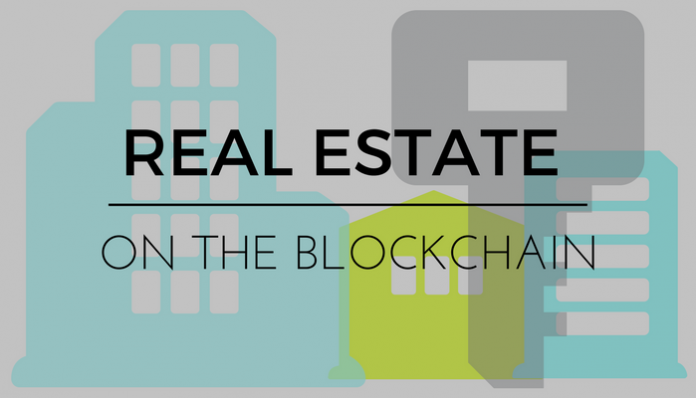
This small island in the Mediterranean has been one of the first countries in Europe to think positively about blockchain technology, with the understanding of its future importance.
Not only the Prime Minister, Joseph Muscat, speaks openly about revolutionising the healthcare system and land registry by implementing blockchain but he has also given a green light to Malta Gaming Authority to regulate cryptocurrency gambling.
Even though we are still years away from seeing blockchain becoming a part of our everyday life, there’s another light in a tunnel – Malta’s real estate is looking into blockchain technology as an enhancement to their current services.
Two of the biggest real estate agencies, QLZH and Engel & Völkers Sara Grech, have expressed their interest in blockchain tech for property management.
The CEO of Zanzi Homes, Steve Mercieca, told Malta Chamber:
“We are in fact redeveloping our entire back office system at the moment to improve our performance and keep up to date with trends such as virtual reality and Blockchain. Although we still believe the market is extremely small and still a long way away, we want to be ready for and possible fast track.”
On the contrary, Benjamin Grech, Managing Director at Engel & Völkers Sara Grech, points out that implementing blockchain technology has been something the property industry has been considering for years. However, they only have an access to a fraction of data, coming from their market share. If there was a nationwide database available, the dream could become reality.
This early stage doesn’t mean that companies shouldn’t start preparing themselves. Blockchain technology is already here and it isn’t going anywhere. Whoever is preparing for the transformation earlier, will only benefit in the future.
Blockchain Technology and Real Estate

The internet made it possible for individuals to send information quickly, securely and across the borders. Similarly, blockchain technology offers the same advantages, but for transferring value – money and assets.
When people say ‘blockchain technology’, they typically refer to cryptocurrency. While it’s true, there’s a lot more blockchain can do. The complex technology, secured by cryptography, is capable of validating transactions, storing sensitive data and… can do all that without a middleman intrusion.
Yes – blockchain technology can eliminate the third party involvement and enable consumers to go directly to the source. Given real estate industry, it doesn’t mean that estate agents will disappear and we won’t need any assistance. If that was the case, those two entrepreneurs wouldn’t be looking into blockchain tech.
But, it can speed up the system, provide more transparency and reduce a risk of fraud.
Speeding up the system
Currently, buying or renting a house means endless paperwork, lawyers and tons of other factors that make the process unnecessarily long. These middlemen exist because they hold information that cannot be accessed without required skills or knowledge. Public blockchain, on the other hand, is a distributed database where anyone can equally access that information.
Blockchain will enable every property to have a corresponding digital address that contains all the financial and legal details. Including change in ownership, conveyance and building structure. That data will be immediately available online and the speed of sending this information through will be cut down to minutes.
Reducing fraud
Real estate market is filled with fraud related stories – shady landlords, sellers that vanish after pocketing the money, and money scams.
Blockchain will offer an incorruptible source, where every fraud would be logged and publicly available to everyone. It could also issue ‘digital ownership certificates’ that would be almost impossible to replicate and they would be directly linked to one property.
Transparency
One of the most stressful parts of acquiring a property is trying to get a mortgage or a bank approval.
However, by using blockchain, people could create a digital ID for real estate assets for both buyers and sellers. Buyer’s credit history and income would be immediately verified and sellers could easily prove the ownership of the house with all the necessary details in minutes. Without having to go through banks and lawyers.
The Future of Blockchain Tech in Real Estate
The change is not going to happen overnight – blockchain technology is still in its infancy and it will take a few innovative and forward-thinking real estate companies to initiate the transformation.
As Mr Mercieca said: “Technology is bringing people closer in many aspects of life, including financial transactions. Removing the intermediary will achieve this and I personally believe it is something customers want, including customers within the property industry.”
In the future, blockchain technology could make buying a house uncomplicated and smooth, allowing people to focus on the most important factor: creating a home for themselves and their family, without a headache.
Malta is becoming an increasingly attractive place for an investment, and with the aspiration of becoming the Silicon Valley of Europe, it’s one of the best places to try new technologies. The country attracts plenty of tech start-ups and is slowly becoming a welcoming hub for savvy entrepreneurs.
The fact that Malta’s real estate is looking into blockchain technology can only bring the innovation closer to people. It indicates that blockchain isn’t reserved for distant companies but will also influence their personal lives.



![Bitcoin Buyer Review of Official Website [2022] bitcoin buyer review featured image](https://bitemycoin.com/wp-content/uploads/2022/04/bitcoin-buyer-review-featured-218x150.jpg)
![Bitcoin Digital | Official Website Review [2022] bitcoin digital review featured](https://bitemycoin.com/wp-content/uploads/2022/04/bitcoin-digital-featured-218x150.jpg)



